Select Language
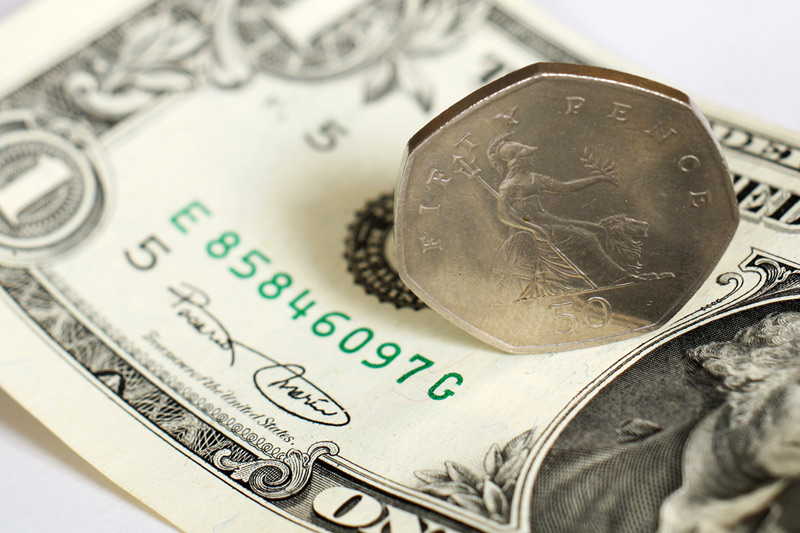
The U.S. dollar traded higher Wednesday, climbing away from its lowest level since the start of October as traders contemplated the Federal Reserve’s interest rate path after soft labor market data.
At 03:55 ET (08:55 GMT), the Dollar Index, which tracks the greenback against a basket of six other currencies, traded 0.4% higher to 98.200, after hitting its lowest level since the beginning of October earlier in the week.
The index is down over 9% this year, on track for its steepest annual decline since 2017.
Cooling U.S. labor market
Data released on Tuesday showed that U.S. nonfarm payrolls rose by 64,000 jobs in November, exceeding economists’ forecasts, but this followed a sharp 105,000 job loss in October and came with the unemployment rate climbing to 4.6%, the highest since 2021.
The figures pointed to a cooling labor market and blurred the outlook for Fed policy.
That said, “the combined release yesterday of October and November jobs data did not alter the Fed’s narrative that the risk to the U.S. labor market is on the downside,” said analysts at ING, in a note.
“While Chair Powell has said that data releases will be distorted by the government shutdown, he has also spent much time positioning the unemployment rate as the best read on the supply-demand imbalance in the US labor market. The 4.6% rate is now higher than the median rate (4.5%) expected by FOMC members for the end of 2025.”
Sterling slumps after soft inflation data
In Europe, GBP/USD slumped 0.8% to 1.3322 after the release of softer than expected U.K, inflation data lifted expectations of a rate cut by the Bank of England on Thursday.
Annual U.K. consumer price inflation rose 3.2% in November, a fall from 3.6% the prior month and the lowest figure in eight months
The BoE’s Monetary Policy Committee voted 5-4 to leave rates unchanged last month, and signs of falling prices could well swing what is still likely to be a tight vote in favor of easing monetary policy.
A cut of 25 basis points would bring borrowing costs down to 3.75% from 4%, the lowest rate since the beginning of February 2023.
EUR/USD traded 0.3% lower to 1.1717, with the single currency slipping slightly but remaining close to the 12-week high it touched in the previous session ahead of the policy decision from the European Central Bank later this week.
The November eurozone CPI release is due later in the session, but is unlikely to sway central bank policymakers from keeping interest rates at 2% for a fourth straight meeting on Thursday.
“Hawkish comments from the ECB’s Isabel Schabel really reverberated through FX and rates markets last week,” said analysts at ING. “Should she be exposed as a hawkish outlier on Thursday and eurozone growth forecasts be revised insufficiently higher, then the euro could get hit.”
Yen hands back gains ahead of BOJ
In Asia, USD/JPY gained 0.5% to 155.54, with the yen retreating ahead of the Bank of Japan’s policy decision later this week.
The central bank is widely expected to raise interest rates, as policymakers respond to signs of more durable inflation and improving wage growth.
A rate hike would mark another step away from Japan’s ultra-loose monetary stance and could provide support to the yen.
USD/CNY traded 0.1% higher to 7.0457, while AUD/USD slipped 0.2% to 0.6619, with equity weakness on Wall Street hitting risk sentiment.
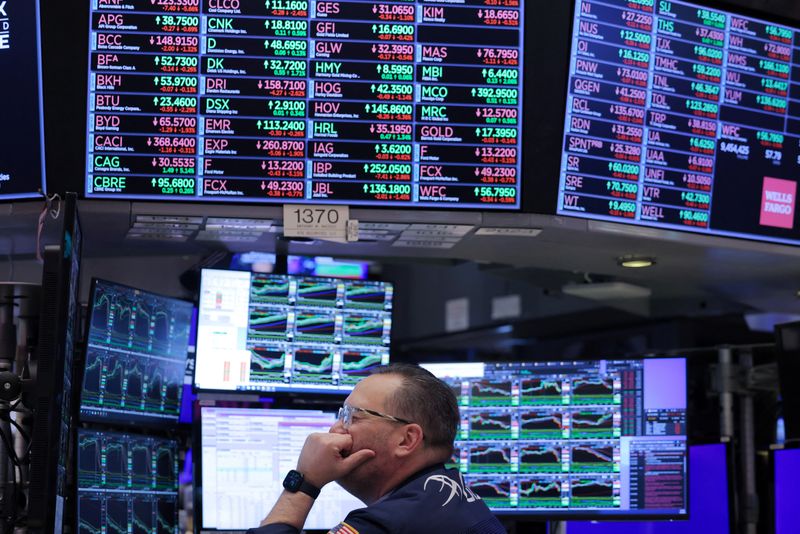
U.S. stock futures fell Tuesday amid caution ahead of the release of key economic data, with technology shares remaining on the backfoot.
At 06:15 ET (11:15 GMT), Dow Jones Futures fell 55 points, or 0.1%, S&P 500 Futures dropped 15 points, or 0.2%, and Nasdaq 100 Futures slid 90 points, or 0.4%.
The main averages on Wall Street declined in the previous session, with the tech sector declining the hardest on lingering concerns over the sustainability of the artificial intelligence boom after underwhelming recent quarterly reports from AI-exposed groups Broadcom (NASDAQ:AVGO) and Oracle (NYSE:ORCL).
Nonfarm payrolls due
Much of Tuesday’s attention will be on the release of nonfarm payrolls data for November, with the print being delayed due to disruptions caused by a government shutdown in October and early-November.
The print will be closely watched for more signs of immediate cooling in the labor market, which has been seen steadily deteriorating in recent months.
The payrolls print also comes just days before CPI data for November, which will also be closely scrutinized by markets.
Labor strength and inflation are the Federal Reserve’s two main considerations for cutting interest rates, with the central bank having flagged a data-driven approach to further easing after cutting interest rates last week.
Comments from New York Fed President John Williams on Monday reiterated the Fed’s data-driven stance.
Markets are also focused on who will become the Fed’s next Chair, with reports stating that U.S. President Donald Trump had narrowed his shortlist for Jerome Powell’s successor to former Fed Governor Kevin Warsh and National Economic Council Director Kevin Hassett.
Lennar headlines earnings list
The earnings season is gradually coming to a close, butresults from homebuilder Lennar Corporation (NYSE:LEN) are due after the close of U.S. markets.
The firm posted a 46% slip in profit in the third quarter, weighed down by sticky inflation which has dented the affordability of the American housing market.
Elsewhere, major exchange Nasdaq is seeking approval from U.S. securities authorities to extend trading hours on its stock venues to 23 hours during the work week, according to Bloomberg News.
In a filing with the Securities and Exchange Commission on Monday, Nasdaq asked for permission to tack on an additional trading session which would last from 9 p.m. to 4 a.m. ET.
Crude retreats further
Oil prices slumped as raised prospects for a Russia-Ukraine peace deal lifted the potential of an easing of sanctions.
Brent futures last dropped 1.6% to $59.58 a barrel, and U.S. West Texas Intermediate crude futures fell 1.8% to $55.65 a barrel.
U.S. officials have flagged some progress in the Russia-Ukraine peace talks, with Kyiv offering to drop its aspirations to join the NATO military alliance, a major point of contention for Russia, while Washington offered Ukraine security guarantees.
But a deal on territorial concessions, a highly sensitive topic for Ukraine, remained elusive.
A peace deal could result in U.S. sanctions on Russian oil companies being lifted, adding to an already well supplied market.
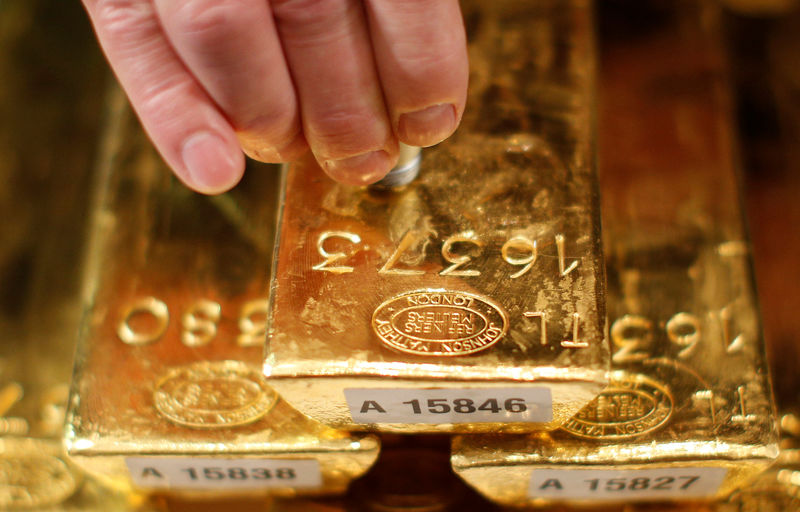
Gold prices rose in Asian trade on Monday, extending gains after hitting a near two-month high in the prior session as weakness in the dollar and Treasury yields, following less hawkish signals from the Federal Reserve, buoyed metal markets.
Silver prices remained close to record highs after stellar gains last week, while broader metal prices also advanced.
Focus this week is squarely on two key U.S. economic indicators– nonfarm payrolls and consumer price index inflation– which are likely to factor into the Fed’s outlook on interest rates.
Spot gold rose 1% to $4,343.62 an ounce, while gold futures for March rose 1.1% to $4,375.80/oz by 01:00 ET (06:00 GMT).
Spot silver rose 1.6% to $62.9865/oz, remaining close to a record high hit last week. Spot platinum rose 1.8% to $1,781.09/oz.
Gold, metals extend gains after dovish Fed signals hit dollar, yields
Gold and other metals largely extended gains from last week, as the sector was boosted by weakness in the dollar and Treasury yields.
This came largely following dovish signals from the Fed, after it cut interest rates last week and signaled it will immediately begin buying short-dated Treasuries from December, at a monthly pace of $40 billion.
The Fed’s asset buying activities present a dovish outlook for monetary policy, especially given that local liquidity conditions are likely to loosen further with the cash injections.
Gold stands to benefit in such an environment. But the Fed’s announcement also buoyed haven-linked demand for gold, given that it raised questions about the health of the U.S. economy.
Nonfarm payrolls, CPI data awaited
Focus this week is squarely on U.S. nonfarm payrolls and CPI data for November, due on Tuesday and Thursday, respectively.
The payrolls print, which usually lands on the first Friday of every month, was delayed due to a long-running government shutdown in October and November.
But markets will be watching closely for more signs of easing labor market growth and cooling inflation, given that the two are the Fed’s biggest considerations for cutting interest rates.
The prints will also be the most recent official economic readings available to markets after the government shutdown disrupted several key prints for October.
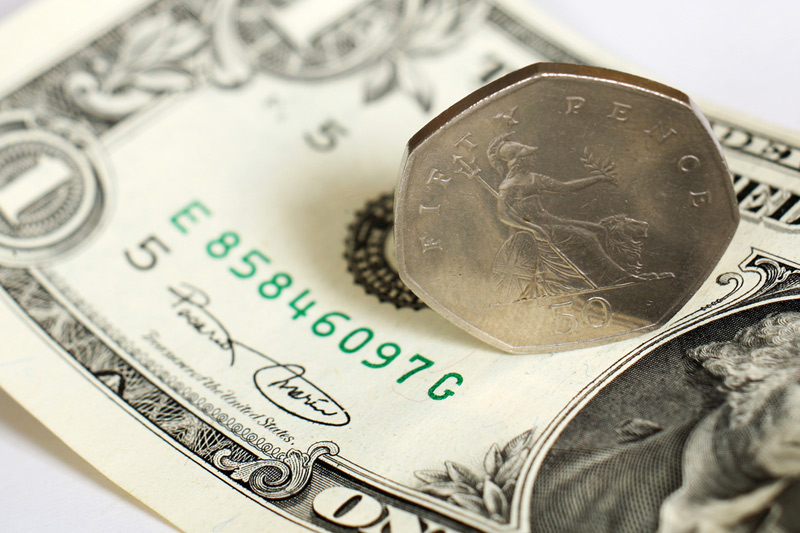
The U.S. dollar steadied Friday, but was on course for a third consecutive weekly fall after the Federal Reserve cut interest rates earlier this week, bringing borrowing costs to a near three-year low.
At 04:00 ET (09:00 GMT), the Dollar Index, which tracks the greenback against a basket of six other currencies, traded largely unchanged at 97.995, but was set for a weekly drop of 0.7%.
The index is down more than 9% this year, on pace for its steepest annual drop since 2017.
Dollar slips after Fed meeting
The U.S. central bank lowered rates by 25 basis points this week, as expected, but remarks from Chair Jerome Powell at his post-meeting press conference were more balanced and less hawkish than many had anticipated.
The Fed policymakers also forecast another rate cut next year, even with members of the central bank showing divisions over December’s move.
“The bearish wind is coming not only from interest rates but also from end-of-year seasonality,” said analysts at ING, in a note. “Dollar rates saw another calibration of Fed expectations lower, with the 2y falling to 3.50% and the market pricing in 3.05% as the Fed terminal rate at the end of next year, keeping pressure on the U.S. dollar.”
The focus going forward will hinge on economic data that is still lagging from the impact of the 43-day federal government shutdown in October and November, as well as the identity of the next Fed chair.
Euro undervalued versus dollar - ING
In Europe, GBP/USD dropped 0.1% to 1.3383, falling back from its highest level since October after data showed that the U.K. economy unexpectedly contracted in October, with uncertainty ahead of the Autumn budget by Chancellor Rachel Reeves likely curtailing growth.
Data released earlier Friday by the Office for National Statistics showed that U.K. gross domestic product fell by 0.1% on a monthly basis in October, matching the drop seen during the prior month and below the 0.1% growth expected.
The Bank of England holds its final policy-setting meeting of the year next week, and is widely expected to cut interest rates by a quarter point to 3.75% as recent data has shown inflation drifting lower.
EUR/USD edged lower to 1.1736, but the single currency was poised to register weekly gains of 0.8%, on course for a third weekly gain.
German inflation rose to 2.6% in November, confirming preliminary data, while consumer prices harmonised to compare with other European Union countries, stood at 2.3% year-on-year in October.
“Following the Fed meeting this week, the market’s attention will shift to the ECB meeting next Thursday. President Christine Lagarde will present a new forecast, which should be the first test of the current pricing of no further rate cuts, in line with our view,” ING added.
BOJ looms large
In Asia, USD/JPY gained 0.1% to 155.73, with the yen slightly lower ahead of next week’s Bank of Japan meeting where the broad expectation is for a rate hike.
The market focus is on comments from the policymakers on how the Japanese rate path will look in 2026.
USD/CNY traded 0.1% lower to 7.0556, while AUD/USD gained 0.1% to 0.6673, set for a weekly gain of 0.5% as persistent inflationary pressures suggests the Reserve Bank of Australia could hike rates in the near-term.

Gold prices fell in Asian trade on Thursday as traders digested a mostly dovish outlook from the Federal Reserve, while silver prices retreated after marking a fresh record high earlier in the day.
Broader metal prices were also a mixed bag, after the Fed cut interest rates as expected and flagged a higher bar for future rate cuts. But the central bank also outlined plans to increase its asset buying operations, sending a dovish signal to markets.
Gold and other precious metals were hit with some profit-taking after logging strong gains in the run-up to Wednesday’s Fed meeting.
Spot gold fell 0.5% to $4,207.49 an ounce, while gold futures for March rose 0.3% to $4,235.50/oz by 00:39 ET (05:39 GMT).
Silver dips from fresh record high
Spot silver fell slightly to $61.8095/oz, after hitting a record high of $62.8895/oz earlier in the session.
The white metal had rallied over the past week on growing expectations of tighter supplies and improving demand in the coming year. Traders also bought into the metal’s safe haven appeal, which is comparable to gold but at a much lower price point.
Silver prices more than doubled so far in 2025, outpacing gold amid renewed optimism over the white metal’s prospects. Its designation as a critical mineral by the U.S. government also boosted silver’s appeal.
Gold pulls back after Fed rate cut
Gold and broader metal prices moved in a flat-to-low range on Thursday, giving up some recent gains after the Fed’s decision on Wednesday.
The central bank cut interest rates by a widely expected 25 basis points, with Chair Jerome Powell signalling a higher bar for future rate cuts.
But in a move widely viewed as dovish by markets, the Fed said it will resume buying Treasury bills to increase market liquidity, at an initial pace of $40 billion per month.
The Fed’s asset buying operation, termed by many as “quantitative easing,” is expected to increase market liquidity in the coming months, and points to a dovish outlook for monetary policy. Treasury yields fell after the Fed’s announcement.
“Overall, the decision did not come as “hawkish” as some market participants had worried about. In consideration of the updated economic projections, Powell’s comments on the neutral rate, and the unchanged median dots, we maintain our base-case for one 25bp cut in 2026,” analysts at OCBC wrote in a note.
Gold had largely risen in the run-up to the Fed’s meeting, as had other metal prices. They faced some profit-taking after the central bank’s decision.
Spot platinum rose 0.2% to $1,661.18/oz after logging some overnight losses. Among industrial metals, benchmark copper futures on the London Metal Exchange rose 0.4% to $11,608.45 a ton.
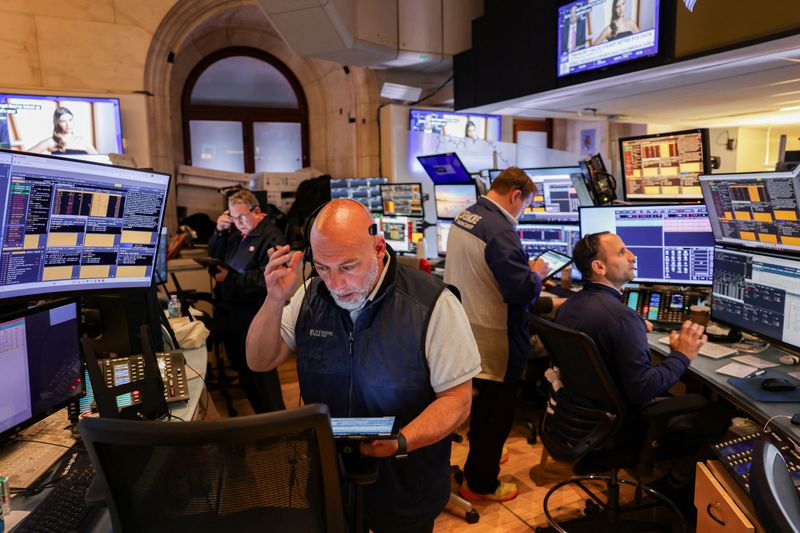
Futures linked to the main U.S. stock indices are hovering just above the flatline, with all eyes on a long-awaited Federal Reserve interest rate announcement. Analysts anticipate that the U.S. central bank will deliver a so-called "hawkish cut," slashing rates but putting a cap on possible reductions in the future. Still, rate markets are factoring in more easing in 2026, as President Donald Trump -- a long-time supporter of quick borrowing cost cuts -- reportedly prepares to hold a final round of interviews with candidates to become the new Fed Chair. On the earnings front, cloud-computing giant Oracle’s artificial intelligence plans will be under scrutiny when it reports after the closing bell.
1. Futures steady
U.S. stock futures pointed slightly higher on Wednesday, as investors geared up for the much-anticipated -- and potentially deeply contested -- Fed rate decision.
By 02:52 ET (07:52 GMT), the Dow futures contract was mostly unchanged, while S&P 500 futures and Nasdaq 100 futures had both ticked up by 0.1%.
The main averages on Wall Street were mixed in the prior session, with much of the attention swirling around the start of the Fed’s two-day policy meeting.
Both the blue-chip Dow Jones Industrial Average and benchmark S&P 500 ended lower on Tuesday, while the tech-heavy Nasdaq Composite gained 0.1%.
Partially weighing on sentiment was a marginal increase in U.S. job openings in October, although hiring remained subdued and resignations were around their lowest level in five years -- all potential signs of widespread economic uncertainty that some economists have suggested is linked to sweeping U.S. tariffs.
2. Fed expected to deliver "hawkish cut"
The report from the Labor Department underscored expectations that the Fed will likely cut interest rates at the conclusion of its gathering on Wednesday, but offer up a more hawkish outlook for the months ahead.
According to CME FedWatch, the chances of a quarter-point reduction in borrowing costs currently stands at roughly 88%. In theory, slashing rates -- which the Fed has already done in September and October, bringing its target range down to 3.75% to 4% -- can help spur investment and hiring, albeit at the risk of reigniting inflationary pressures.
While markets are widely confident that a rate cut is impending, media reports have said policymakers could be unusually divided over such a move, citing worries over sticky price gains and a relative dearth of fresh economic data due to a record-long government shutdown. A new summary of Fed members’ economic projections is also slated to be unveiled.
Looking to appease both sides of the policy argument, Fed Chair Jerome Powell is reportedly set to advocate for a drawdown this month and then use his post-meeting news conference to signal that the bar will be high for any further easing.
Still, establishing this high bar may be difficult. By January, officials will have had a chance to parse through more up-to-date employment and inflation numbers, and it is not clear what policy trajectory these figures could support.
3. Trump planning to start final round of Fed Chair interviews - report
Meanwhile, President Donald Trump is aiming to begin the final round of interviews for the next Fed Chair in the coming days, according to the Wall Street Journal.
Citing senior administration officials, the WSJ said Trump and some of his aides are scheduled to interview former Fed Governor Kevin Warsh on Wednesday, and meet with other candidates soon.
One of those will be Kevin Hassett, the White House economic adviser many reports have described as the frontrunner to replace Powell when his term at the helm of the Fed ends next year.
Hassett is a close ally of Trump, who has long badgered the Fed and Powell to aggressively and rapidly lower interest rates to help boost the economy. Some economists have predicted that Hassett could advocate for such quick easing, although, because he would have just one vote in the 12-member Federal Open Market Committee, his influence may be limited.
Yet, as analysts at ING flagged in a note, rates markets have priced in "so much easing" ahead, despite projections for a so-called "hawkish cut" from the Fed today.
"Presumably, this is the Kevin Hassett effect, where his arrival at the Fed in February can throw a dovish cloak over the FOMC outlook," the ING analysts including Chris Turner and Frantisek Taborsky said.
4. Oracle to report
Oracle is set to headline the earnings calendar on Wednesday, with analysts keen for the cloud computing giant to offer more insight into its artificial intelligence ambitions.
Fueled by a partnership with ChatGPT-maker OpenAI, Oracle has transformed its image this year from a smaller player in the cloud business to an essential provider of the rented computing power needed to underpin AI models.
A massive contract backlog of over $400 billion sent Oracle’s share price skyrocketing earlier this year, briefly propelling the company up to a market valuation near a trillion dollars and temporarily making co-founder Larry Ellison one of the world’s richest people.
However, that enthusiasm has since shown signs of fading, as observers fret over whether Oracle has relied too heavily on OpenAI and borrowed too much to fund a buildout of data centers.
5. Adobe earnings ahead
Adobe is also due to report its latest quarterly earnings after the closing bell on Wall Street.
Shares of the firm behind creative products like Photoshop and Acrobat have slumped by more than 21% so far this year, well underperforming the tech-heavy Nasdaq Composite.
In a note to clients, analysts at Stifel said it is "no secret" that a key "overhang" for Adobe’s stock price has been the belief that AI will be a disruptive force to creative departments, "making creators more efficient by orders of magnitude and shrinking the number of addressable seats over time." A "seat" refers to a pass allowing a user to access Adobe’s apps and services.
The analysts including J. Parker Lane and Jack McShane said that catalysts to "quickly turn sentiment around" on Adobe’s stock price are "foggy," although they said a "critical and successful AI-induced strategy pivot" at the company is in its "early days."
Adobe, whose tools are widely utilized in the photography and film industries, could be particularly bolstered by positioning itself as a sort of "Switzerland" in the AI race, becoming a central hub of generative AI where users can "test, leverage, and pay for third-party model usage," the analysts said.
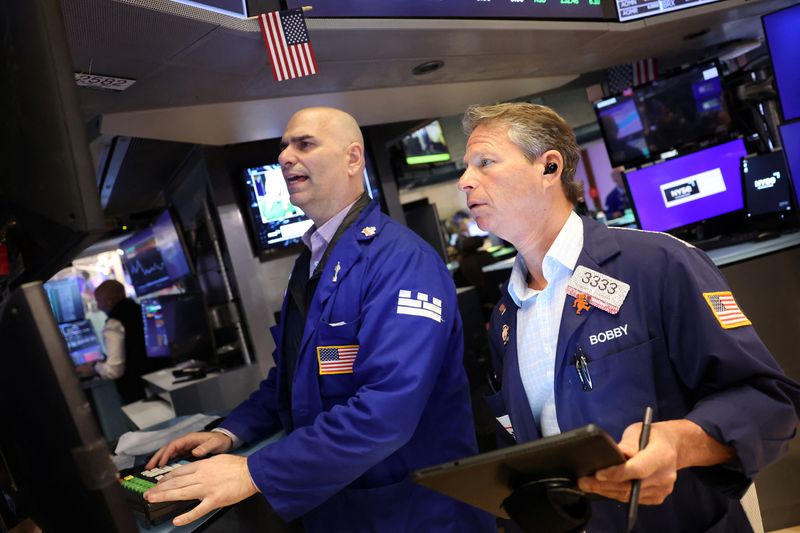
Futures tied to the largest U.S. stock indices point broadly higher. A major -- and possibly contentious -- Federal Reserve interest rate decision on Wednesday looms large, while traders are pouring through the details of a new twist in the potential acquisition of sections, or even all of, Warner Bros Discovery. Elsewhere, the White House says it will let Nvidia begin shipping its second-most advanced H200 processors to China, and Bitcoin edges lower.
1. Futures inch up
U.S. stock futures were hovering just above the flatline on Tuesday, as investors geared up for a much-anticipated Federal Reserve interest rate decision later in the week.
By 02:55 ET (07:55 GMT), the Dow futures contract had risen by 26 points, or 0.1%, S&P 500 futures had risen by 8 points, or 0.1%, and Nasdaq 100 futures had gained 26 points, or 0.1%.
The main averages on Wall Street ended lower in the prior session, weighed down by a climb in Treasury yields, in a sign that caution may be prevailing ahead of the Fed’s upcoming announcement on Wednesday (more below).
Benchmark 10-year Treasury yields, which tend to move inversely to prices, also gained upward impetus from a powerful earthquake which struck off the coast of Japan.
Beyond the Fed and bonds, traders were preparing for the release of earnings reports from tech giants Oracle and Broadcom this week, which come as markets have fretted over massive, and often debt-driven, spending on artificial intelligence.
In individual stocks, shares of Confluent jumped after IBM said it would buy the data-infrastructure firm, while a bearish outlook from Morgan Stanley sent Tesla’s stock price down by 3%.
2. Paramount’s hostile bid for Warner Bros Discovery
The battle in Hollywood to acquire Warner Bros Discovery and potentially reshape the media landscape in the process has taken another turn.
Just days after streaming titan Netflix was named the winner of a bidding war for the studio behind hits like "The Godfather," Paramount Skydance said it had launched a hostile bid worth $108.4 billion.
The amount would surpass the $72 billion equity deal Netflix had secure for Warner’s television, film studios and streaming assets -- and represent a 139% premium over the company’s value from before the buyout negotiations began. Notably, Paramount’s rival bid would be for all of Warner, including its cable television properties.
Warner’s board of directors said on Monday that it would review Paramount’s offer, although it did not change its position on the Netflix transaction and told the company not to take any action on the rival proposal.
3. Trump allows Nvidia to export H200 chips to China
Nvidia will now be allowed by the U.S. to export its H200 AI chips to China, while Washington will rake in a 25% fee on these sales, President Donald Trump has said.
It marks a modest departure from some export restrictions the U.S. had placed on sending cutting-edge AI processors to China. Previously, the most advanced semiconductor Nvidia was able to ship to the country was its prior-generation H20 model, reflecting long-time concern among some U.S. lawmakers around advances in China’s military and industrial capabilities.
The H200 stands to be around six times more powerful than the H20, according to Reuters, citing research from the non-partisan Institute for Progress think tank.
Still, given Beijing’s recent crackdown on domestic companies using U.S. technology, it is not yet clear if the White House’s new policy will boost sales for Nvidia.
Shares of Nvidia, a darling of the AI boom, ticked higher in extended hours U.S. trading, adding to a 1.7% rise in the stock on Monday.
4. Fed to begin two-day meeting
Attention is beginning to shift to the start of the Fed’s latest two-day policy meeting, which investors are expecting will end on Wednesday with a cut to U.S. interest rates.
Bets on a 25-basis point reduction by the U.S. central bank have increased following a slate of relatively tepid economic data which underlined pressure on the American job market, a marginal increase in consumer spending and stable -- albeit elevated -- inflation.
The chances of such a drawdown now stand at roughly 89%, CME FedWatch has shown. The Fed’s current target rate is now at 3.75% to 4%.
Still, there is an outside chance that officials choose to leave rates unchanged at that level, with some policymakers recently flagging concerns around unveiling a third cut since September during a time when fresh economic data has been scarce because of a record-long government shutdown.
Analysts have suggested that the decision may prove to be one of the most contentious in years.
5. Bitcoin edges lower
Bitcoin was showing signs of consolidation, with traders refraining from taking fresh positions ahead of the Fed gathering.
Lower interest rates typically weaken the U.S. dollar and reduce returns on cash and fixed-income assets, possibly making alternative, non-yielding assets like Bitcoin more attractive.
Amid these expectations of a prolonged cutting cycle, the world’s most popular cryptocurrency has had a rollercoaster 2025, notching fresh all-time peaks and sliding lower as debate over rates, tariffs, and AI rocked stock markets.
This has in turn underpinned a growing sense that a correlation between Bitcoin and risk-assets like stocks has strengthened.

Gold prices edged higher in Asian trading on Monday as the U.S. dollar hovered near a five-week low, supported by firm expectations that the Federal Reserve will cut interest rates this week.
A run of softer economic data and Friday’s inflation figures strengthened market conviction that the central bank is preparing to loosen policy, though investor caution kept bullion gains modest.
Spot gold was last up 0.3% at $4,208.55 an ounce by 03:28 ET (08:28 GMT). U.S. Gold Futures for February slipped 0.3% to $4,2371.10.
Gold supported by Fed easing bets, but caution remains
Gold rose as a weaker dollar made the metal more attractive for overseas buyers.
The dollar’s retreat has been driven largely by rising confidence that the Fed will deliver a quarter-point cut at its upcoming Dec. 9–10 meeting, with traders pricing in the move after several indicators pointed to easing inflationary pressures.
Recent economic releases -- including a soft private-sector payroll report and slowing labour-market momentum -- have reinforced expectations of policy easing.
Meanwhile, the delayed U.S. core Personal Consumption Expenditures (PCE) index, the Fed’s preferred inflation gauge, showed only a mild monthly rise and an annual rate continuing to drift lower.
Lower interest rates reduce the opportunity cost of holding bullion, while a subdued dollar can further enhance demand by making gold cheaper in global markets.
However, gains remained limited as investors stayed cautious. U.S. Treasury yields have edged higher in recent sessions, offsetting some of the support from a softer dollar.
Market participants also point to mixed signals from Fed policymakers in recent weeks, with some officials warning against premature easing. The divide has injected uncertainty into the policy outlook, raising the risk of an unexpected stance from the central bank.
Traders now await the Fed’s decision and Chair Jerome Powell’s press conference for confirmation that easing is underway.
Metal markets subdued
Other precious and industrial metals traded in tight ranges on Monday amid a broader cautious mood.
Silver Futures fell 0.6% to $58.708 per ounce, while Platinum Futures fell 0.3% to $1,663.60/oz.
Benchmark Copper Futures on the London Metal Exchange edged up 0.3% to $11,681.20 a ton, while U.S. Copper Futures declined 0.7% to $4.67 a pound.

Gold prices edged higher in Asian trading on Monday as the U.S. dollar hovered near a five-week low, supported by firm expectations that the Federal Reserve will cut interest rates this week.
A run of softer economic data and Friday’s inflation figures strengthened market conviction that the central bank is preparing to loosen policy, though investor caution kept bullion gains modest.
Spot gold was last up 0.3% at $4,208.55 an ounce by 03:28 ET (08:28 GMT). U.S. Gold Futures for February slipped 0.3% to $4,2371.10.
Gold supported by Fed easing bets, but caution remains
Gold rose as a weaker dollar made the metal more attractive for overseas buyers.
The dollar’s retreat has been driven largely by rising confidence that the Fed will deliver a quarter-point cut at its upcoming Dec. 9–10 meeting, with traders pricing in the move after several indicators pointed to easing inflationary pressures.
Recent economic releases -- including a soft private-sector payroll report and slowing labour-market momentum -- have reinforced expectations of policy easing.
Meanwhile, the delayed U.S. core Personal Consumption Expenditures (PCE) index, the Fed’s preferred inflation gauge, showed only a mild monthly rise and an annual rate continuing to drift lower.
Lower interest rates reduce the opportunity cost of holding bullion, while a subdued dollar can further enhance demand by making gold cheaper in global markets.
However, gains remained limited as investors stayed cautious. U.S. Treasury yields have edged higher in recent sessions, offsetting some of the support from a softer dollar.
Market participants also point to mixed signals from Fed policymakers in recent weeks, with some officials warning against premature easing. The divide has injected uncertainty into the policy outlook, raising the risk of an unexpected stance from the central bank.
Traders now await the Fed’s decision and Chair Jerome Powell’s press conference for confirmation that easing is underway.
Metal markets subdued
Other precious and industrial metals traded in tight ranges on Monday amid a broader cautious mood.
Silver Futures fell 0.6% to $58.708 per ounce, while Platinum Futures fell 0.3% to $1,663.60/oz.
Benchmark Copper Futures on the London Metal Exchange edged up 0.3% to $11,681.20 a ton, while U.S. Copper Futures declined 0.7% to $4.67 a pound.
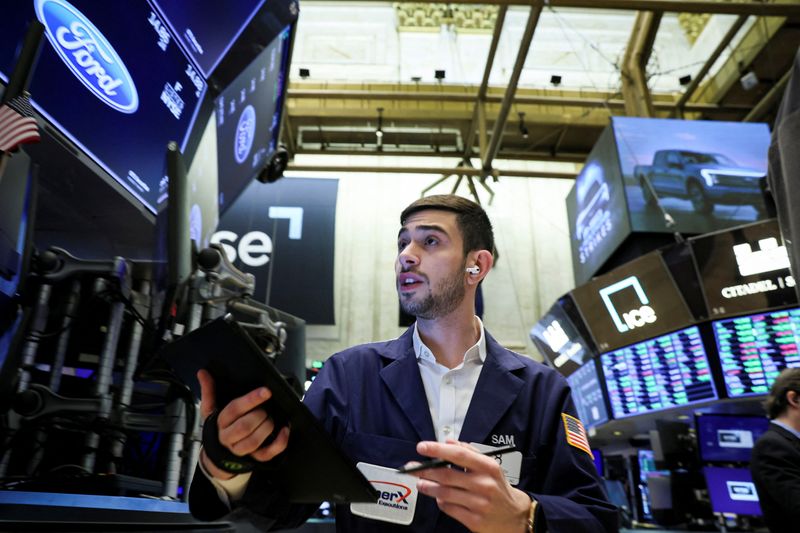
U.S. stock futures traded in tight ranges Friday, with investors awaiting a key inflation report for confirmation that the Federal Reserve will cut interest rates next week.
At 05:40 ET (10:40 GMT), Dow Jones Futures slipped 18 points, or 0.1%, while S&P 500 Futures gained 11 points, or 0.2%, and Nasdaq 100 Futures rose 104 points, or 0.4%.
The main averages closed in a mixed fashion in the prior session, with the benchmark S&P 500 and tech-heavy NASDAQ Composite both advancing, while the blue-chip Dow Jones Industrial Average lagged.
All three indices have managed to eke out small gains so far this week.
PCE inflation gauge in spotlight
Expectations of 25-basis point reduction at the Federal Reserve’s December 9–10 meeting are running hot -- with futures now pricing in roughly an 87% probability -- on the back of recent weak labor data and broader signs of economic cooling.
Thursday’s weekly jobless claims plunged by 27,000 to a seasonally adjusted 191,000, the lowest level since September 2022, but economists cautioned that distortions tied to the Thanksgiving holiday may have exaggerated the decline.
Elsewhere, a private-sector payroll report from ADP on Wednesday showed a decline of 32,000 jobs -- the largest drop in over two and a half years, and a report by Challenger, Gray & Christmas stated that announced job cuts dropped sharply in November but hiring intentions remained weak.
While the importance of price stability, the second element of the Fed’s dual mandate, has faded a little of late, all eyes are now on the release of the delayed monthly core inflation gauge, the Personal Consumption Expenditures Price Index (PCE), later in the session.
This is widely seen as the Fed’s preferred inflation measure, and a soft PCE print could further embolden rate-cut expectations.
Excluding food and energy, the underlying, or "core," PCE price index is seen holding at 2.9% in the 12 months to September and 0.2% month-on-month.
Beyond PCE, the economic calendar will feature the latest survey of consumer sentiment from the University of Michigan.
Netflix linked with Warner Bros Discovery’s film assets
In the corporate sector, Netflix (NASDAQ:NFLX) has entered into exclusive negotiations to purchase Warner Bros Discovery’s (NASDAQ:WBD) film and television studios as well as its prized streaming assets, media reports have said.
The streaming giant reportedly offered $28 per share for those portions of the long-time Hollywood stalwart, whose brands include HBO and DC Comics.
Should the transaction be finalized, it would transform Netflix into a media powerhouse with control over one of the most valuable content libraries in the entertainment industry.
Netflix and Warner Bros are anticipated to announce a deal imminently, the Wall Street Journal reported, citing people familiar with the matter.
Elsewhere, Ulta Beauty (NASDAQ:ULTA) shares soared premarket after the cosmetics retailer topped Wall Street estimates for its fiscal third quarter and raised its full-year outlook.
Hewlett Packard Enterprise (NYSE:HPE) stock slumped after the cloud services and hardware company missed analysts’ revenue expectations for the fourth quarter, posting $9.68 billion versus a consensus estimate of $9.94 billion.
Crude steadies; WTI on track for weekly gain
Oil prices steadied Friday, maintaining the previous session’s gains as stalled diplomatic progress over the Ukraine war and firm expectations of a U.S. Federal Reserve rate cut supported sentiment.
Brent futures slipped 0.1% to $63.24 a barrel, and U.S. West Texas Intermediate crude futures fell 0.1% to $59.60 a barrel.
Both contracts jumped nearly 1% on Thursday, and while Brent was mostly unchanged this week, WTI was on track for a 1.5% weekly gain - a second straight week of increase.
The lack of progress in U.S.-Russia talks to end the Ukraine war has dampened hopes that energy sanctions on Russian crude could be eased soon, keeping a risk premium in the market.

